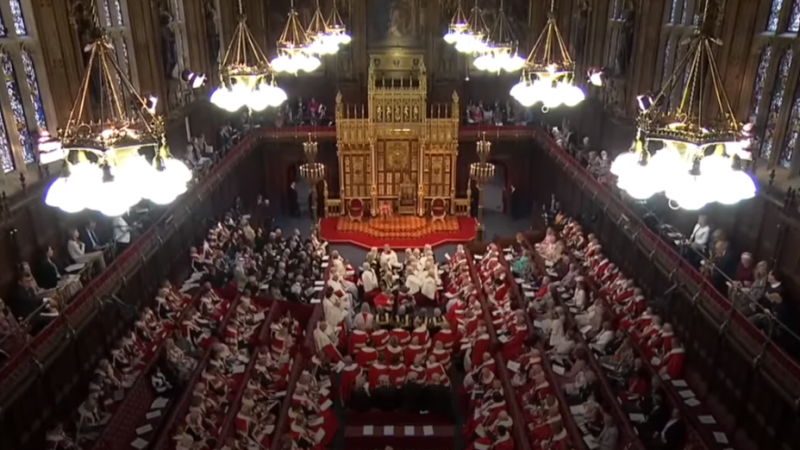The proposed Bill is part of gesture politics. It will do little, if anything, to improve audit quality.

Prem Sikka is an Emeritus Professor of Accounting at the University of Essex and the University of Sheffield, a Labour member of the House of Lords, and Contributing Editor at Left Foot Forward.
The UK auditing industry has long been delivering dud audits. Patisserie Valerie, London Capital and Finance, BHS, Carillion, Conviviality, Mitie Group, Bargain Booze, Autonomy, Thomas Cook, Redcentric, Quindell and Stagecoach are just some of the reminders of the failures of the auditing industry. Audit Firms collect mega fees and their partners enjoy a lavish lifestyle for delivering loss of jobs, savings, pensions and investments.
This week comes the news that accounting firm KPMG is to be fined £14m for submitting forged documents to the Financial Reporting Council (FRC) investigating the firm’s audit failures at Carillion, a government contractor which collapsed in January 2018.
Irregular practices are not unusual. KPMG was administrator of Silentnight. Rather than rescuing the company, KPMG and its insolvency partner pushed it into insolvency so that private equity firm HIG, a client coveted by KPMG, could buy the company at a lower price by dumping pension obligations to employees. Around 1,200 Silentnight employees lost some of their pension rights. KPMG was fined £13m and its insolvency partner was found to be “untruthful”.
Other major accounting firms also have a history of delivering dud audits and abuses. The FRC states that 29% of the audits delivered by the biggest seven accounting firms fail to meet the feather-duster UK standards which they themselves institutionalised.
Parliamentary inquiries into the 2016 BHS and the 2018 Carillion collapses highlighted fundamental flaws in external auditing and triggered calls for reforms. At BHS, audit partners from PricewaterhouseCoopers (PwC) spent just two hours on audit and thirty-one hours on consultancy. The firm was auditing the transactions that it helped to create. The audit team was under the control of a person with only one-year’s post-qualification experience. Most aspects of financial statements were poorly audited. To appease directors, PwC audit partners backdated the audit report.
The parliamentary reports were followed by three inquiries. The Kingman review recommended that the FRC’s independence and powers need to be strengthened and that it should be rebranded as the Audit, Reporting and Governance Authority (ARGA). A review by the Competition and Markets Authority report focused upon resilience of the audit market, especially as just four big firms audit the entire FTSE 100 and around 91% of the FTSE 250 companies. A review by Sir Donald Brydon focused upon audit effectiveness. This was followed by more consultation, primarily to enable big firms to dilute reforms.
Some six years after the BHS collapse and numerous other audit failures, this week the Queen’s Speech stated that the government will introduce a Bill to reform audits.
The outline of the proposed Audit Reform Bill is disappointing and will not help to improve audit quality or auditor accountability. The Bill will transform the FRC into ARGA, but does nothing to free the FRC/ARGA from the tentacles of big accounting firms and corporations. The regulator continues to appoint individuals from big accounting firms and corporations who make crucial decisions about accounting and auditing practices. There is little or no direct representation on the FRC/ARGA structures of stakeholders negatively affected by auditor negligence. Cognitive capture of regulators remains institutionalised.
To prevent market turbulence arising from the collapse of a major accounting firm, many have called for joint audits of large companies, involving a big and a medium-size firm. Some have called for shared audits. The Bill refers to a “new approach of managed shared audit” but provides no details of what this would mean for auditor independence, audit quality, co-ordination or auditor liability. There are no proposals to break-up the big four firms to increase competition and ensure that no firm is too big to shut-down for persistently delivering poor audits.
There is virtually nothing in the proposed Bill outline about audit quality or auditor accountability. For example, there is no ban on auditors selling consultancy services to audit clients. There are no proposals for strengthening auditor independence. There is no response to revelations of audit failures at BHS (see above). There is nothing to prevent delegation of audit work to novices, with partners spending minimal time on the actual audit.
Public scrutiny of auditors needs to be increased. This would be facilitated by publication of audit tenders, composition of the audit teams, time spent by each grade of staff on audit, audit contract, major questions asked by auditors and replies received from directors. Stakeholders need to be informed of the regulatory action against the firm during the last five years and audit shortcomings found by regulatory inspections. Audit files should also be available to stakeholders. However, the Bill contains no proposals for enhancing public scrutiny and accountability of auditors.
The incidence of liability for delivering poor audits can act as a pressure point for improving quality. However, the Bill contains no proposals for liability reforms and making auditors personally liable for falsifying documentation and becoming a party to cover-up of frauds and financial misstatements.
The proposed Bill is part of gesture politics. It will do little, if anything, to improve audit quality and tackle the corrosive organisational culture of big firms. It provides no relief for long-suffering stakeholders.
Left Foot Forward doesn't have the backing of big business or billionaires. We rely on the kind and generous support of ordinary people like you.
You can support hard-hitting journalism that holds the right to account, provides a forum for debate among progressives, and covers the stories the rest of the media ignore. Donate today.



